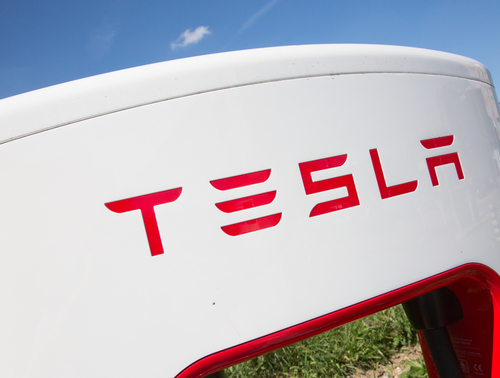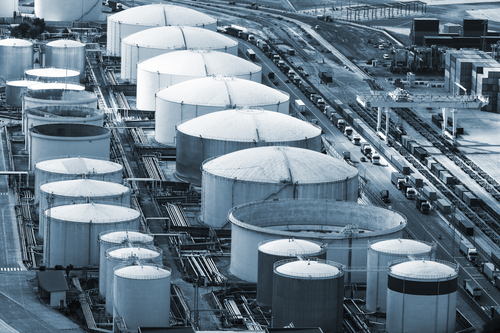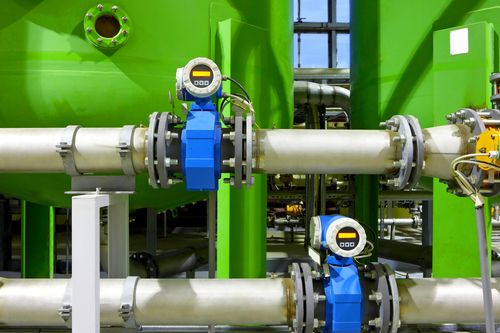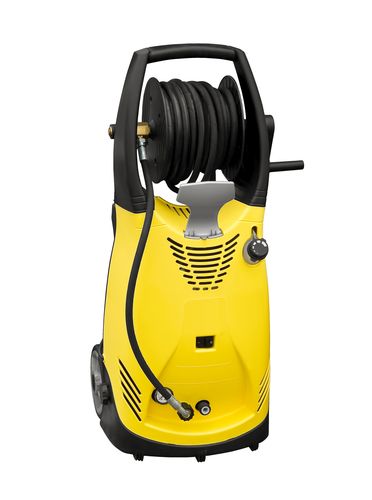Tesla’s Chinese-made Model Y achieved good sales figures in February
After more than three months since the launch of Tesla’s Model Y in China, the electric car continues to achieve good sales figures. The midsize SUV ranks third among the best-selling e-cars in February, with 4,630 vehicles delivered. This is according to figures from the China Passenger Car Association (CPCA). If January is included, the Model Y ranks 9th among the most sold vehicles with alternative engines, which include e-cars. Contributing to the Model Y’s success in China was Tesla’s announcement on New Year’s Day that it would sell the vehicle 30 percent cheaper than announced.

The three startups Xpeng, LiAuto and Nio are among the top 15 e-car manufacturers in China, according to the CPCA. Still, big names lead the way in overall new car sales in February. The Hongguang Mini, a low-cost miniature electric car ranks No. 1 in sales. It was developed by GM joint venture Wuling Motors and state-owned SAIC Motor. Tesla’s Model 3 sedan is in second place. In third place is BYD’s Han luxury sedan, which is available as an all-electric version or with hybrid drive. The vehicle has been one of the best sellers in China since its launch last summer.
Vehicles and components must be awarded a CCC certificate in order for the products to be exported to China or manufactured locally. CCC certification is a complex project that requires professional support at all stages. For several years MPR China Certification GmbH has been entrusted with large CCC projects for the vehicle manufacturers Lotus, Tesla and Bugatti. We will be pleased to provide you with non-binding advice on the scope and requirements of a China CCC certification.
For more information on how CCC certification, the CCC Self-Declaration and voluntary CCAP or CQC certification may affect your company, or for more information about CCC certification in general, the process, and the associated costs, please visit our website and our News Section where you will find current updates twice a week.
Please do not hesitate to contact us for further details and consultation. You can contact us via e-mail, or call us (UK: +44 2071931135, Rest of Europe: +49 69 2713769150, US: +1 773 654-2673).
Please don’t hesitate to also use our chat-window in the bottom right corner if you have any questions. (Please check your browser settings if you can’t see the window)
You can also check out our free CCC-Brochure, which can be downloaded right here as a PDF file or you consult our book (in English) “A Brief Guide to CCC: China Compulsory Certification”, which can be found directly here on Amazon.
Here you can download our brochure about the CCC Self-Declaration.
Here you can download our brochure about the voluntary CCAP or CQC certification.
CCC for electrical explosion-proof products in China
New CCC regulations for certain electrical explosion-proof products have come into force in China last year on 1 October 2020. The announcement came after a transition period of 1 year, which allowed companies to undertake respective change management to comply to the new requirements.

Among others, the list of new product categories that require CCC includes:
• Electric motors
• Pumps
• Switches, control and starter products
• Actuators and solenoid valves
• Surveillance and communication products (e.g. cameras or loudspeakers)
• Cable glands, junction boxes, connectors
• Refrigeration and air conditioning units, dehumidifiers
• Sensors (e.g. temperature sensor, speed sensor, position sensor)
• Safety barriers
Some of the products need regular CCC certification in addition to the CCC ex certification, f.e. electrical motors.
Each accredited Chinese authority releases their own implementation rules, which describe the process of testing, auditing, classification, etc.
These rules tend to differ from another, but all are fundamentally defined by the regulations given out by the CNCA. The certification process is supposed to guarantee the conformity of products according to the national GB standards, which define the methods and specifications.
Here a list of the relevant standards:
| No. | Explosion-proofing type | GB standards | |
| General standards | Detailed standards | ||
| 1 | Explosion suppression “d” | GB3836.1 | GB3836.2 |
| 2 | Increased safety “e” | GB3836.3 | |
| 3 | Intrinsically safe “i” | GB3836.4 | |
| 4 | Positive pressure enclosure “p” | GB/T3836.5 | |
| 5 | Immersion “o” | GB/T3836.6 | |
| 6 | Sand filling “q” | GB/T3836.7 | |
| 7 | “n” type | GB3836.8 | |
| 8 | Encapsulation “m” | GB3836.9 | |
| 9 | Intrinsically safe “iD” | GB12476.1 | GB12476.4 |
| 10 | Enclosure protection “tD” | GB12476.5 | |
| 11 | Encapsulation protection “mD” | GB12476.6 | |
| 12 | Positive pressure protection “pD” | GB12476.7 | |
You can find more information in our specific article on CCC for electrical explosion-proof products in China on Hazardex.
You can also find more information on the process on our page about CCC for explosion proof products.
For more information on how CCC certification, the CCC Self-Declaration and voluntary CCAP or CQC certification may affect your company, or for more information about CCC certification in general, the process, and the associated costs, please visit our website and our News Section where you will find current updates twice a week.
Please do not hesitate to contact us for further details and consultation. You can contact us via e-mail, or call us (UK: +44 2071931135, Rest of Europe: +49 69 2713769150, US: +1 773 654-2673).
Please don’t hesitate to also use our chat-window in the bottom right corner if you have any questions. (Please check your browser settings if you can’t see the window)
You can also check out our free CCC-Brochure, which can be downloaded right here as a PDF file or you consult our book (in English) “A Brief Guide to CCC: China Compulsory Certification”, which can be found directly here on Amazon.
Here you can download our brochure about the CCC Self-Declaration.
Here you can download our brochure about the voluntary CCAP or CQC certification.
China launches new hydrogen research and development program
The featured national research and development program, “Key Technologies for Machinery and Safety Research in Liquid Hydrogen Production, Storage, Transportation and Filling,” was presented by Jin Hongguan, director of China’s Ministry of Science and Technology, in Beijing on Jan. 29. Guests in attendance included representatives from Beijing Sino-Science FULLCRYO Co. Ltd, Technical Institute of Physics and Chemistry of Chinese Academy of Science (CAS), Beijing Special Engineering Design and Research Institute, Tongji University and China Special Equipment and Research Institute (CSEI). During the conference, the project leaders and their associates introduced the goal and content of the research program and corresponding timelines.

Beijing Sino-Science FULLCRYO Co. Ltd. is to take the lead in the project. They will be supported by a total of 10 research groups from CAS and CSEI. The CSEI, as the inspection body for research on safety-related machinery and equipment such as boilers, pressure vessels and pressure piping, is working on the project “Research on Key Technologies for Safety Risk Assessment and Accident Prevention in the Production, Storage and Filling of Liquid Hydrogen.” Among other things, hydrogen liquefaction plants and hydrogen filling stations will be examined for their safety under real operating conditions. In addition, the safety and monitoring equipment will be tested for suitability and improved with new technology.
This special research project is intended to eliminate the current bottleneck of appropriate safety technology in the field of production, storage and filling of liquid hydrogen and to promote the expansion of this technology. The Chinese government hopes that this will lead to a growth of the industry in the field of hydrogen transport and refueling stations and is promoting corresponding projects. A so-called SELO license is required in China for the import and manufacture of equipment and machines that use gases such as hydrogen. The license is issued by the Chinese authority SELO – China Special Equipment Licensing Office. Like the CSEI, this authority is subordinate to the state market regulator SAMR. Other names for the SELO license are Chinese Manufacture License (CML), China Stamp or Pressure Vessel License. The regulation came into effect in 2014, and foreign and domestic manufacturers need the SELO license to sell their products in China. Are you interested in SELO licensing for the Chinese market? MPR China Certification GmbH offer you to conduct SELO licensing.
If your company operates in China and manufactures or sells products such as steam boilers, pressure vessels, boilers, safety parts, gas cylinders, tanks and pressure lines or pipelines in China, then you need a so-called SELO license. This regulation on the safety of special equipment came into effect in 2014 and requires domestic and foreign manufacturers to obtain a SELO license in order to sell their products in China. The SELO license is also called China Manufacture License (CML), China Stamp or pressure vessel license. It is a licensing procedure by the Chinese authority SELO – China Special Equipment Licensing Office. This authority is under the State Administration for Market Regulations (SAMR). Are you interested in SELO licensing for the Chinese market? We will check for you, without obligation, whether your product requires SELO licensing and prepare a quotation for SELO licensing to give you an idea of the costs and effort involved.
Please do not hesitate to contact us for further details and consultation. You can contact us via e-mail, or call us (UK: +44 2071931135, Rest of Europe: +49 69 2713769150, US: +1 773 654-2673).
Please also use our chat-window in the bottom right corner if you have any questions. (Please check your browser settings if you can’t see the window)
High-pressure cleaner companies to showcase their cleaning equipment at CIIE
As a full-range supplier of cleaning equipment and accessories, Kärcher and other companies hope the show, as well as increased demand due to the Covid 19 pandemic, will provide good business opportunities for growth. CIIE is a good platform for expanding international trade, the company said, adding that as a corporation with a global presence, it has already been able to secure numerous orders according to various participating companies. An executive of the Kärcher said the CIEE held in Shanghai has helped them establish strategic cooperation with new partners as well as increase its brand presence during the past three years.
As customers pay attention to cleanliness and hygiene, they want to buy the latest technology when purchasing products. This has generated higher demand for efficient and environmentally friendly concepts.

China is considered one of the most strategically important markets for high-pressure cleaners, with the CIEE exhibition used to trade, exchange experiences and cooperate with other companies.
At past events, the various showcases introduced customized products for a wide range of cleaning purposes. Among others, automatic washing devices for vehicles as well as for cleaning streets and alleys were presented to the public, as well as a fully automated washing robot with camera sensors and radar.
Products sold to China and used in business activities in China require CCC certification. The list of product groups is constantly expanding and, depending on the category, a mandatory certification China Compulsory Certificate or, since 2019, a CCC Self-Declaration or a voluntary certification must be obtained. The CCC certificate was introduced in 2002 and applies to both imported and Chinese products. CCC stands for China Compulsory Certificate. The Chinese CCC is comparable to other certifications for standardizing product quality, such as the European CE system, but there are important differences.
For more information on how CCC certification, the CCC Self-Declaration and voluntary CCAP or CQC certification may affect your company, or for more information about CCC certification in general, the process, and the associated costs, please visit our website and our News Section where you will find current updates twice a week.
Please do not hesitate to contact us for further details and consultation. You can contact us via e-mail, or call us (UK: +44 2071931135, Rest of Europe: +49 69 2713769150, US: +1 773 654-2673).
Please don’t hesitate to also use our chat-window in the bottom right corner if you have any questions. (Please check your browser settings if you can’t see the window)
You can also check out our free CCC-Brochure, which can be downloaded right here as a PDF file or you consult our book (in English) “A Brief Guide to CCC: China Compulsory Certification”, which can be found directly here on Amazon.
Here you can download our brochure about the CCC Self-Declaration.
Here you can download our brochure about the voluntary CCAP or CQC certification.


